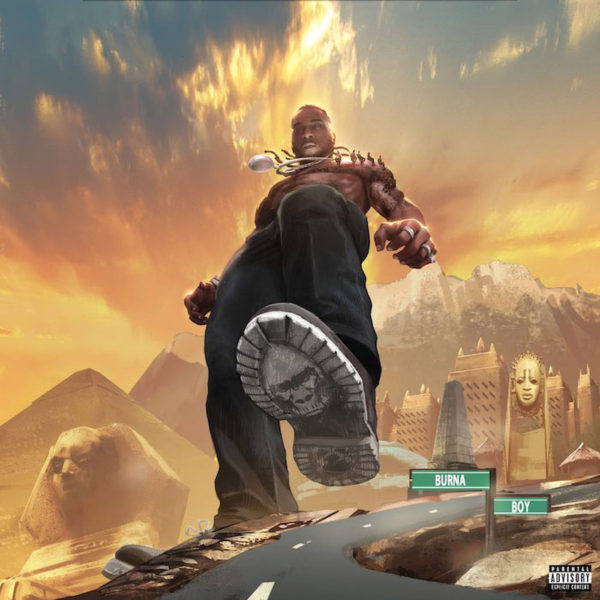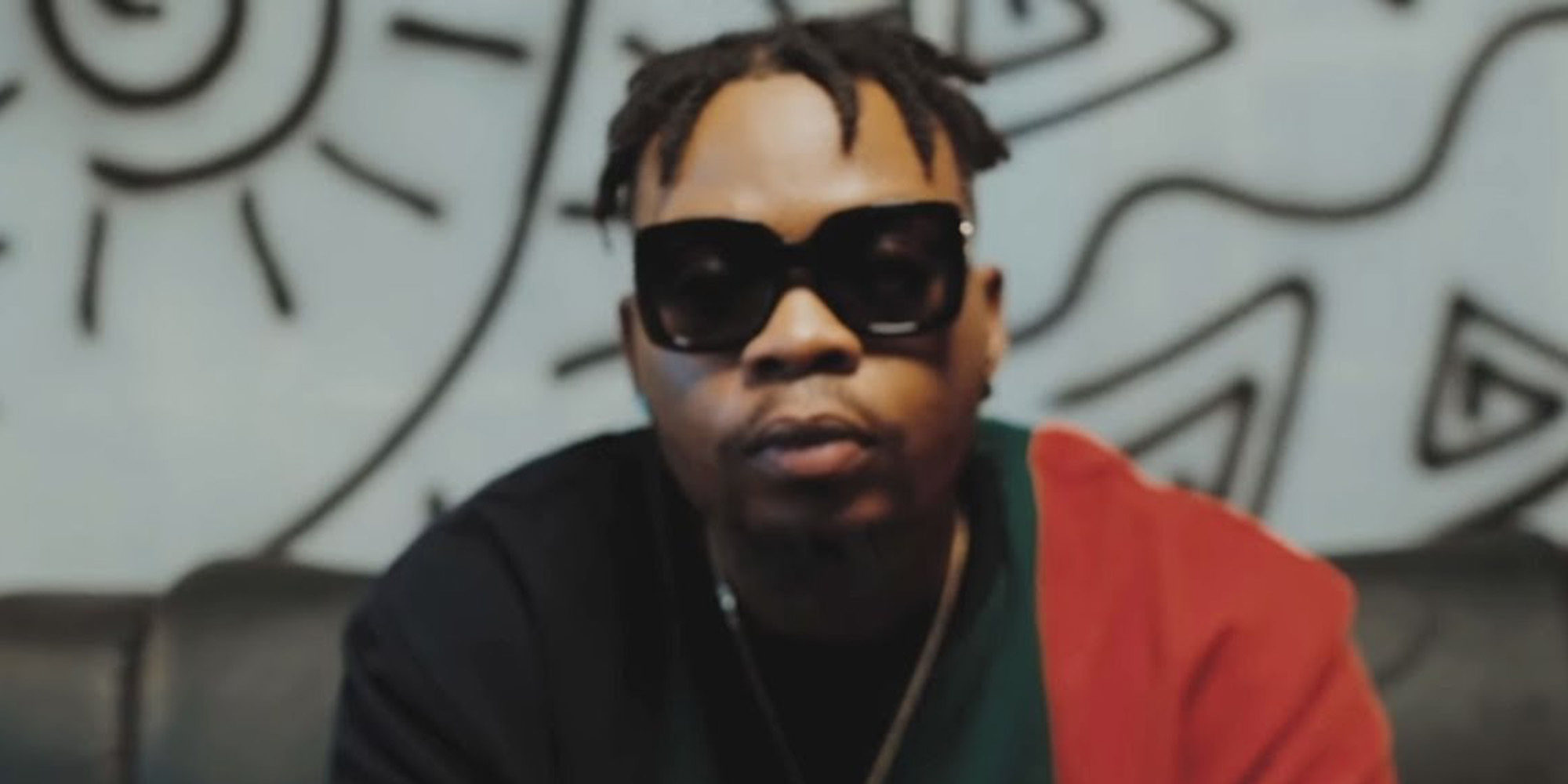Olamide Adedeji (also called Olamide Baddo or BaddoSneh) is a Nigerian hip-hop artist and producer. He’s been a reliable hit-maker since 2010, but is equally impactful with his record label YBNL Nation, which has introduced artists like Adekunle Gold, and more recently, the rising “Afrobeats” star of 2020, Fireboy DML. Afropop’s Banning Eyre spoke with Olamide by Skype about the artist/producer’s new album, Carpe Diem, and a most unusual year coming to an end.
Banning Eyre: Where am I reaching you?
Olamide: Baltimore. I came to visit my family. My son is in school here, and I'm also using the opportunity to create new music.
I've been listening to Carpe Diem, a very rich album.
I'm glad you like it.
So, I am with Afropop Worldwide. We've been reporting on African music on American public radio since 1988, more than 30 years.
Wow. That's huge.
We think so. But I’m not sure our listeners know a lot about you, so why don’t you start by introducing yourself and telling us a bit about your career.
My name is Olamide, and my stage name is also Olamide. I am the CEO of YBNL Nation music. I'm a record label owner, and also an artist. I'm into hip-hop as well as Afrobeats music. I started my career way back in 2010. My big break was 2010. And right after that, a year after that, I started up my own record label, and started signing new artists from the grassroots, guys with good potential. I signed the likes of Adekunle Gold, the likes of B Banks, and right now I have Fireboy on the front lines representing for YBNL.
We love Adekunle Gold. We presented him at SXSW last year. He’s a terrific artist. And we’ve been catching the buzz about Fireboy. But let's go back to the beginning. Maybe you could start by telling us what YBNL means.
YBNL is the Nigerian version of what bad boy entertainment sounds like to people out here. I don't know if you get that, though. But that's what it is like.
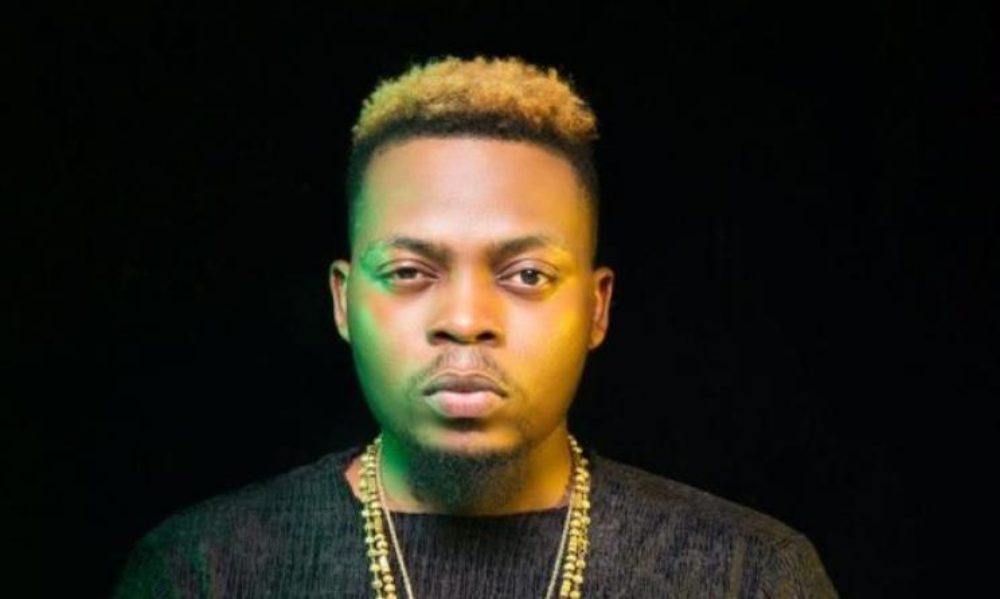
I guess I have some idea what that means. It was a different world back then. Talk about how the industry was different then. I mean, it's grown so much in those years.
Definitely. Massively. Right now the global market is paying more attention to Afrobeats music, Afrobeats artists are seeing more opportunities globally. They've been able to reach out to fans, being able to connect with them as well on bigger stages. Things are just way more better now. Back then we didn't have platforms like Tidal and all that, where you can stream the music online. I don't even know how they heard our music. I think they were just using YouTube or something to transfer music. I mean, it was really crazy back then. Technology has really moved the world further from the way it used to be. Things are much easier now. I can't help but be grateful to God to be alive experiencing this whole positive change. New doors opening up to Afrobeats artists and I’m really grateful to be part of this..
I hear you. I'm going to try one more time on YBNL. What do those letters actually stand for?
Oh, the letters. YBNL is “Yahoo boy no laptop.” It's a slang on the streets of Lagos. When they call you Yahoo boy no laptop it means that you’re fly, you’re fly like crazy. Because it's very hard to see any young dude or young man that's looking fly in the ghetto. So if you’re looking fly, people tend to always think that you're into illegal business like credit card scams and all that. And those are the guys who are called Yahoo boys. So when people find out that you are not really into illegal business, credit card scams and all that, they tend to call you Yahoo boy no laptop. So that's it.
I get it. Having a laptop was the key to everything, not just music, right?
It was just peoples’ own way of relating to me. They hail you, "Yahoo boy no laptop!" If you’re looking fly and you're making money, and they know you're not doing anything illegal. Because I started making good money when I blew up in 2010. And I was independent so I wasn’t sharing that money with nobody. That was a lot of money, you know. It was so much that I had to start my own record label.
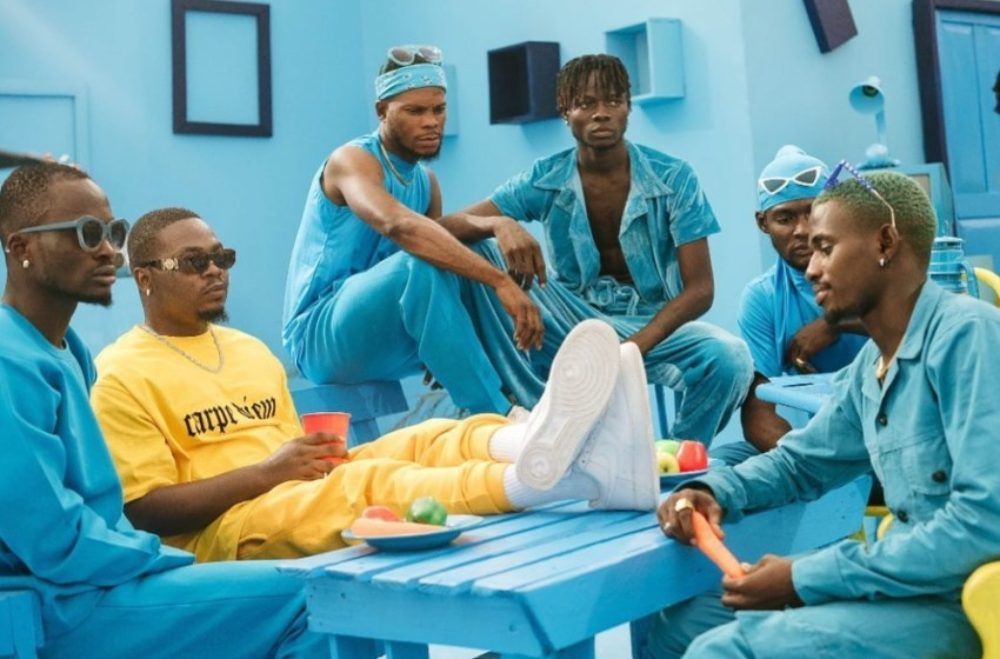
That's amazing. Let's come up to the present and talk about this new album. I want to ask you about a few of the songs. But maybe I’ll start by asking you about the whole concept of the album Carpe Diem, seize the day. What's your message on this album.
2020 has been a crazy year, you know. And I just felt this is my own way of giving back to the world, let people have something to hold onto and make them feel and appreciate life, and make them enjoy the moment and just live and do their thing regardless. If you stop thinking about yesterday, failures and all that, sorrows and all that, and not to worry too much about tomorrow. It's just going to happen. Because you only have one life to live and you have to maximize every opportunity right in front of you and live your life to the fullest while you can. That's just my own way of giving back to the world. So that’s why, if you listen to the project very well, it sounds very happy.
Let’s talk about some of the songs, starting with the opener, "Another Level." What's going on in that song?
“Another Level” is talking about nature, appreciating the moonlight, the sun, the stars and everything—things that money can't buy. When you attach your happiness to things like that, you will never be bothered about nothing no more, because when you start appreciating all these things like the air you breathe and all… You know, money can't buy that. And there's nothing like being grateful to God for things like that. When you are grateful, you will get more blessings. So that's the concept there.
How about “Eru”? That's a very sweet song.
“Eru” is the latest party festival kind of setting and mood, and the sound itself-- that's what it feels like when you're in Lagos and you hear that music. Lagos people like to party a lot. They party a lot. So that sound is really about the festivals and the parties in Lagos. The word itself, eru, is “jewel.” In this context, a jewel is something that's priceless, a priceless jewel; that's what eru is.
How about your latest video, “Infinity.”
“Infinity” is talking about having a good time with your girl and all the crazy things you want to do with your girl when you're alone and all that. It's just something to serenade the beautiful girls.
I really like this song “Shilalo.” It's got a great hook.
Shilalo. I did that with Phyno. Most of the songs here, they are just feel-good music. Shilalo is also a serenade to beautiful ladies. It's really talking about how much they mean to me. Even when I'm not feeling like dancing and having fun, they can always show me love. It's just appreciating the beautiful ladies in my life, my friends, my fans…because a guy loves the beautiful ladies.
I just watched the video for the song "Triumphant." I see you're doing most of your videos with Clarence Peters. We interviewed him when we were there in 2017. He's quite the video production genius. But tell me what's going on in that one, because it seems like it's a somewhat more serious song.
“Triumphant” talks about the ups and downs I’ve been through in life. I lost my dad four years ago. Then I lost my mom three years ago. It was like back to back, yeah, really hard, you know. Ever since then, it kind of affected my creative process, my career and all that. I became much more low key. I became less active. I became very antisocial. And it was driving me crazy. But I just bounced back this year. I got my swagger back here. That's what the songs really about, the things I went through all through that period. And the fact that I'm still here to keep going, to keep doing my thing and keep striving for success and greatness.
I feel that. Losing your parents is hard. The video opens with that amazing shot of you lying in this kind of circular cauldron. Where is that?
Outside Lagos. It’s somewhere around the new Dangote oil refinery.
Let's talk about what's going on in Lagos. I have been reading about the End SARS movement, and how artists are taking an important role in that. What's your take on all that?
It's very important for everyone. You don't have to be an artist or something to be involved or to do what is right, to fight for justice and all that. Things are going wrong in society so it is only right for people to stand up against injustice. It's also key for artists because we have a stronger voice and more numbers with our social media following. So it's very important that we lend that voice to a process like this, so that people can be heard. It is very key.
When we were in Nigeria we spoke with a lot of people about social activism and music. Obviously Afrobeats takes its name from Fela, one of the greatest social critics in African music. But it didn’t seem like all that many artists from your generation were picking up that side of his legacy. Do you think that something that is changing now?
In all honesty there has always been some set of artists that do shed light on societal issues in their songs. But probably most of those artists are not the mainstream ones. Maybe 90 percent of the mainstream are not doing that. But there are a lot of artists in Nigeria that have been doing stuff like that, the likes of Afrika China, the likes of Idriss Abdul Karim. I could go on and on. There's a lot of them. We also have Burna Boy, who has been doing that also in his songs. Burna Boy. Timaya. A lot of them.
It's just that most of those songs, they don't become mainstream and they don't blow up like the pop music. Even myself, I have a couple of them, on almost all my albums. But songs like that don't end up popping like the usual club songs are love songs and whatnot. I don't know. I feel like Nigerians, sometimes they just get too tired of talking about their problems or listening to songs about their problems. It's like you’re trying to weigh them down somewhere. They just want to be happy because there's too many problems they're facing out there in the world.
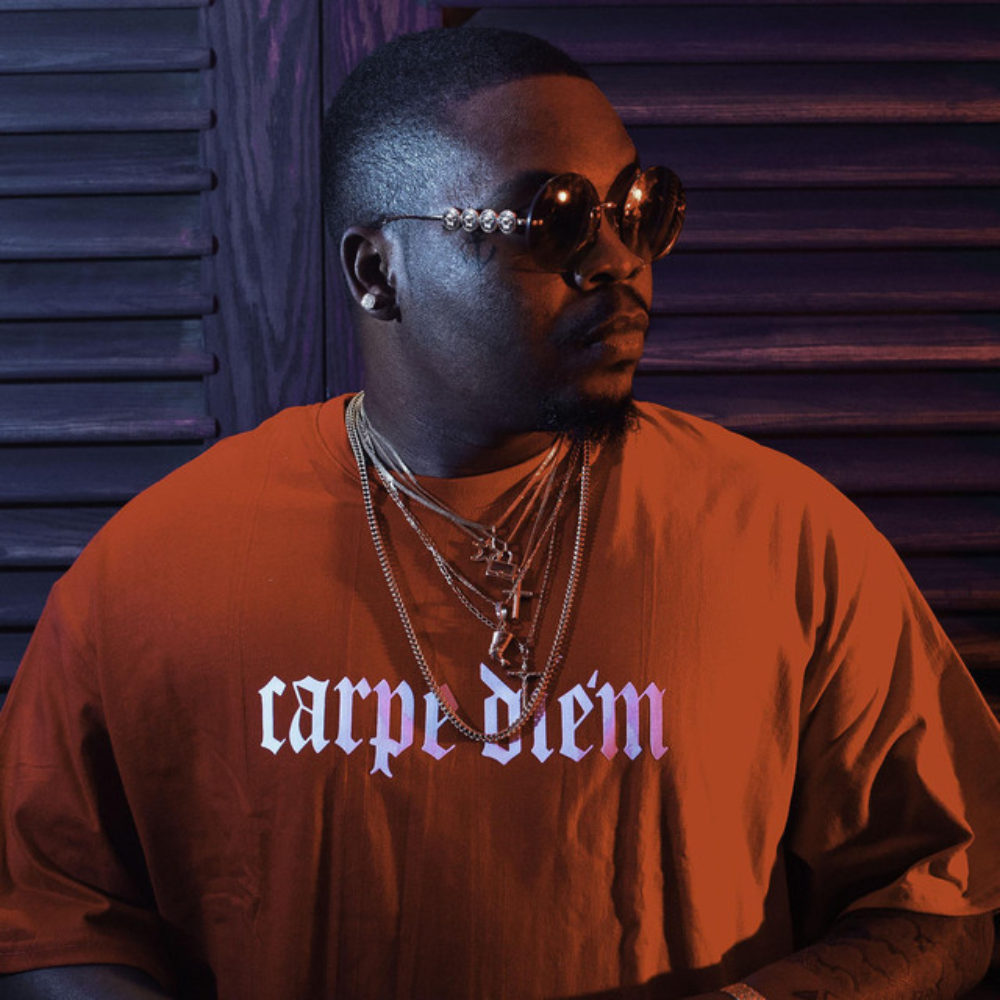
I hear you. Well, music can do many things, but it makes sense that the music that makes people happy is the most popular. Tell me about your new artist, Fireboy DML.
I was in Baltimore about two years ago, around this same time. And while I was there, my friend sends me a record by him, and I listened to the song and I said, "Hey, man, this boy is good!” So I hit him up on IG, Instagram, and I asked him if he was free to sign and all that, and he was like, yeah. Then in December, when I got to Nigeria we started recording and put out a song for him called “Jealous.” Then we shot a video in March, and ever since then he's been a success story.
Fireboy is a very brilliant dude. I don't know where his inspiration comes from, but he's also a fantastic writer. I even think he's more of a fantastic writer than any other thing that he's very good at. He's very good at a lot of things. He’s the kind of dude that's very ambitious. Once his mind is on something, he's never going back. Because the dude actually dropped out of university at 200 level or 300 level, all because of music. And he moved to Lagos. Because he's originally from Abeokuta.
So that kind of like struck me when I heard that. How the hell can you give up your education for music? What if you don't make it? I thought I better help this guy, so he doesn't….
Well, it seems like it's working out. I’ve been listening to his album Apollo, but he has one before that, right?
Right. The first one was LTG, Laughter, Tears and Goosebumps. It had songs like ‘"Jealous." “Vibration.” A lot of great songs.
How old is Fireboy?
Fireboy is 23.
That's exciting, man. It's great to talk with you. We will speak again.
Thanks for having me.
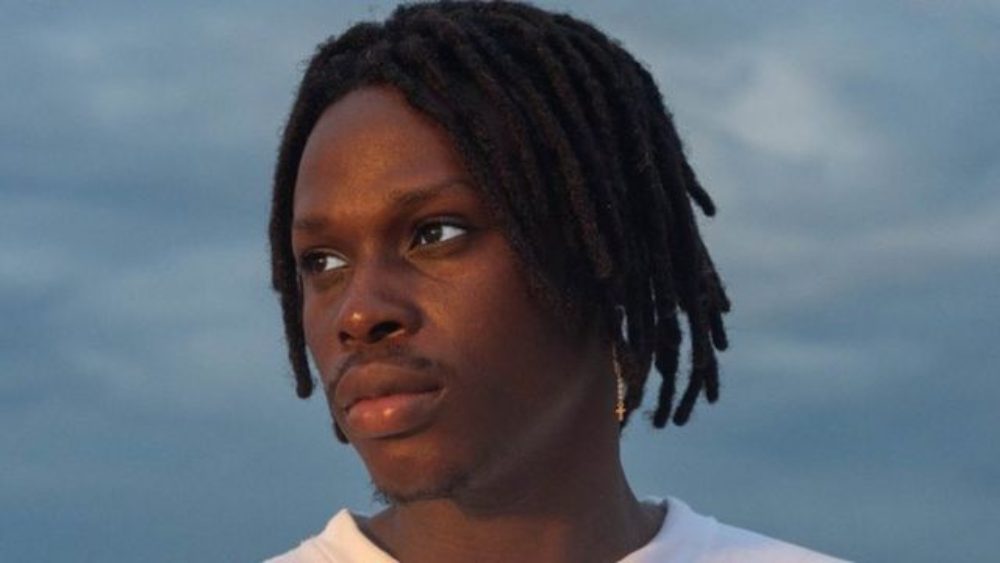
Related Audio Programs
